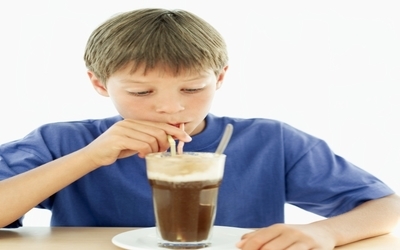What Are the Effects of Fizzy Drinks on Kids?
One of the biggest crazes to recently hit America is to drink bottled water. It’s available everywhere, in a variety of flavours – so instead of a glass of coke with your burger, you can now have a bottle of water instead. However, despite this craze, fizzy drinks are still ranked as the number one drink amongst teens and children. With this in mind, should we be questioning what fizzy drinks are doing to childrens’ health? What’s really in these beverages and could it be putting the youthful generations health at risk? Whatever the flavour, soda pop is basically a mix of sugar and water. But there are hidden dangers besides these basic ingredients, such as caffeine and phosphoric acid. Sugar is the leading cause of a number of health problems, such as tooth decay and obesity. A twelve-ounce can of fizzy drink contains around 39g of sugar. This means that with children and teens drinking such large quantities the obesity crisis continues. Sugar is just empty calories and simply leads to health problems. But what you may not know is that fizzy drinks are harmful to kids because sugar lowers the immunity system – for five or more hours after consuming sugar, the white blood cells have a lower ability to kill bacteria. Kids have a developing immune system and giving them fizzy drinks which lower their ability to fight disease could result in them catching colds and other illnesses.
Carbonated water is the key ingredient in fizzy drinks, which is what gives it the fizz we crave. Research shows that when you drink a twelve-ounce can of fizzy drink, the oxygen level in your body reduces by up to 25 percent for up to three hours. This is bad enough for adults, but in children who need oxygen for their bodily development, it could be more damaging. Likewise, caffeine is a known stimulant which raises one’s blood pressure, level of acids in the stomach and pulse rate. It’s also incredibly addictive, causes dehydration and leads to restlessness. In children, this is a damaging combination and can stop your kids being able to concentrate and can make them restless. Children have increased energy levels anyway but giving them a product that makes concentration even more difficult could affect their ability to learn and pay attention in school.
Healthy bones are made with a mix of calcium, phosphorous and magnesium. However, if there’s too much phosphorous the calcium can be taken from the bones, leading to weakening osteoporosis. Many fizzy drinks contain phosphoric acid which could be harmful to their skeletal structure, a vital development in children. The occasional drink of coke certainly won’t do any harm, but relying on it as a daily beverage could be leading to a number of health problems in young children. There aren’t any nutrients in fizzy drinks, meaning that it can’t be labelled as ‘good for you’. The best thing to do is to limit the consumption of fizzy drinks in your kids’ diet, so that they rely more on water and natural fruit juices to keep them hydrated and healthy. You should also be a good role model for your children in highlighting the importance of a healthy diet for good health and wellbeing. A balanced diet is important for kids and adults alike, and the benefits of this should be explained to children so that they understand why they need to limit unhealthy goods such as fizzy drinks.


Comments are closed.